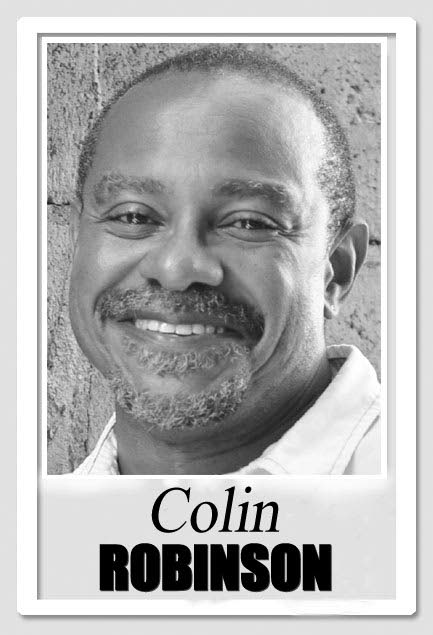Afraid of freedom

Contrary to the highly popular view that our biggest problem in TT is the decline in respect for authority, I believe exactly the opposite. It is our obsession with rules, authority and obedience – our perpetual mourning of their loss and deep longing to return to when they prevailed – that poses perhaps our greatest challenge to equality and development in TT.
This was reflected emblematically in the Prime Minister’s nostalgia last August over when “I joined the Public Service at a time – a long, long time ago when the Service was really the Public Service,” and “you were given a diary” in which “every day you had to record your movement and your actions.” Sound like plantation and passbooks, ent? But we pine for it.
Our biggest failure as a nation has been to transition from the unearned and unjust authority and order of colonialism, stamped so relentlessly onto our souls, to a post-colonial vision of mutual respect and social harmony. One in which respect does not attach to specific office, but is equally a right of all as a matter of human dignity. One in which we can self-govern without resorting to fear and punishment and a dominion of rules. We cannot imagine justice without punishment.
We use the chaos and helplessness of runaway crime as fervent justification of our need for stronger authority. We reject careful criminological analysis for the simpler conclusion that “lawlessness” is the evident consequence of authority’s breakdown. We yearn for a sheriff-like sense of authoritarianism in law enforcement leadership. We reject accountability and human rights standards for crime fighters; they need licence with power. We ignore evidence that opportunistic crime may be a key result of our social and educational systems’ failure to afford human dignity and economic inclusion to whole groups of people, whose refusal to co-operate with authority should be no surprise. Our solution is to argue that they deserve even less fairness.
Some talk about a lack of cultural self-confidence. But on a panel last May I felt the courage to name it differently – and I remember Selwyn Cudjoe’s head shaking in the front row – We are fundamentally afraid of freedom.
We genuinely fear it is dangerous to give people freedom because they will automatically abuse it. This underlies the moral panic that gripped the nation two years ago when a court said people could have consensual sex they want regardless to public morality. Sex we knew thousands of people were having notwithstanding.
Chaos ultimately did not result from the Jones case ruling. But we may still not have learned the freedom lesson.
This week reinforced that conclusion.
A year and a half ago PNM MP Fitzgerald Hinds, who has repeatedly been put to represent what some describe as the most neglected constituencies in the nation, touring the Beetham during a media appearance of caring following flooding that had not yet receded, had what ought to have been a wake-up call about the quality of his representation. With news cameras rolling, the acting Attorney General at the time, had constituents cuss his lack of attention and chase him using their feet to splash him with muddy flood water.
Hardly chastened, Cabinet minister Hinds responded by pressing charges against the community activists caught on camera.
The Director of Public Prosecutions’s Office decided that an overburdened criminal justice system that has innocent people languishing on remand for decades had the time and resources to charge Richard Marcelle on two counts, using obscene language and assault by beating (with water). Marcelle, a city employee, decided to humble. He had another charge, for the weed on him when arrested; plus a firearm charge pending. Magistrate Sanara Toon-McQuilkin dismissed the drug charge, accepted his guilty pleas, and Marcelle paid $400 in fines and went free. He had spent four days in jail awaiting the hearing.
Anderson Wilson, a UNC activist, argued his case. He’d appeared on television the day after Hinds got wet, boasting the MP could expect constituents to continue to hold him to account. On the simple charge of telling his MP, “For 56 years the PNM did --- nothing for Beetham. Hinds, is only promises you giving, and doing nothing for the --- people,” Magistrate Sarah De Silva sentenced the father of five to seven days in jail. Because of his good works in the Beetham community, Deputy DPP George Busby argued, people looked up to him and he therefore needed to be made an example. “Young boys…need a better mentor” than Wilson, who “appeared to have difficulty respecting authority.”
“It cannot be that nothing matters in this country any more.”
The magistrate agreed. High office holders were being treated with “utter disrespect.”
On the contrary. Teaching young people to hold authority to account is what ensures democracy. Teaching them to obediently accept poor representation is totalitarianism.


Comments
"Afraid of freedom"